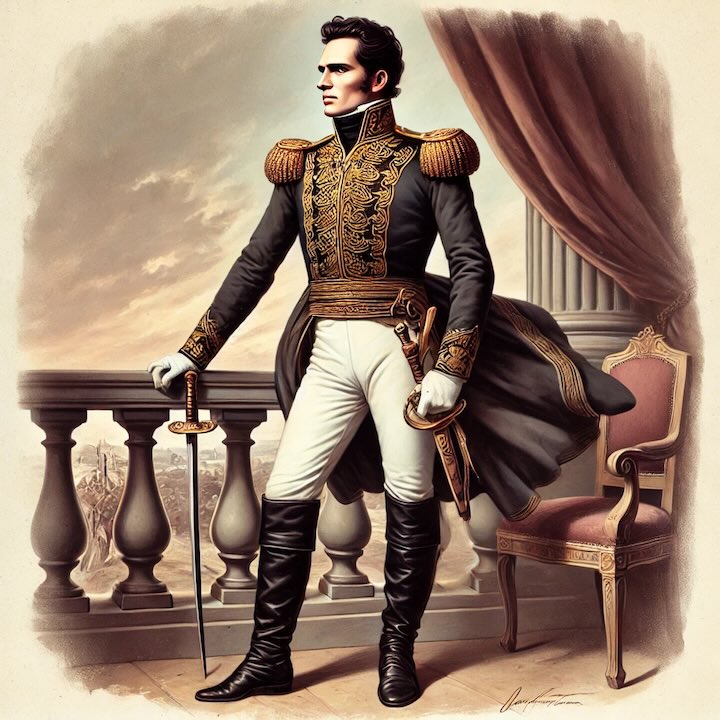Simon Bolivar (1783-1830)

Venezuelan-born leader known for "liberating" South America from Spanish control. Although he served as a virtual dictator over various parts of South America, he did not realize his dream of a federation of all South American states that had Spanish provenance.
Simón Bolívar, often referred to as "El Libertador" (The Liberator), was one of the most influential figures in the history of South America. Born on July 24, 1783, in Caracas, Venezuela, Bolívar played a central role in the independence movements across the continent, leading to the liberation of six countries: Venezuela, Colombia, Ecuador, Peru, Bolivia, and Panama.
Bolívar was born into a wealthy and influential Creole family of Spanish descent. Orphaned at a young age, he was raised by his uncle and received an excellent education in Europe, where he was exposed to Enlightenment ideas, including those of freedom, democracy, and equality. These ideas deeply influenced Bolívar and shaped his vision for a liberated Latin America.
In 1807, Bolívar returned to Venezuela, just as revolutionary sentiments were beginning to stir across Latin America. Inspired by the American and French revolutions, Bolívar joined the movement for independence from Spanish rule. His early efforts, however, were met with challenges. The first Venezuelan republic was established in 1811, but it quickly fell apart due to internal divisions and external pressures, leading to Bolívar’s temporary exile.
Despite these setbacks, Bolívar remained committed to the cause of independence. He embarked on a series of military campaigns across South America, which became known as the Bolívarian Wars of Independence. His persistence paid off when he led a successful campaign to liberate New Granada (modern-day Colombia) in 1819. This victory was a turning point in the struggle for independence, as it provided Bolívar with a strong base of operations from which to continue his fight against Spanish rule.
In 1821, Bolívar achieved a significant victory at the Battle of Carabobo, which effectively secured Venezuela's independence. Bolívar then turned his attention to Ecuador, Peru, and Bolivia. With the help of his trusted general, Antonio José de Sucre, Bolívar was able to defeat Spanish forces in these regions, culminating in the decisive Battle of Ayacucho in 1824. This battle marked the end of Spanish colonial rule in South America.
Bolívar's dream was to create a united Latin American state, which he referred to as "Gran Colombia." This state would encompass much of the northern part of South America, including modern-day Colombia, Venezuela, Ecuador, and Panama. Bolívar believed that only a strong, unified Latin America could resist external powers and secure true independence. However, his vision of a united continent was short-lived. Regional differences, political infighting, and personal rivalries led to the fragmentation of Gran Colombia by 1830.
As Bolívar's health declined, he became increasingly disillusioned with the political situation in South America. Despite his successes on the battlefield, he faced opposition from various factions, including some of his former allies. In December 1830, Bolívar resigned from the presidency of Gran Colombia and prepared to go into exile. However, before he could leave, he died of tuberculosis on December 17, 1830, in Santa Marta, Colombia.
Simón Bolívar's legacy is profound. He is celebrated as a national hero in the countries he helped liberate and remains a symbol of resistance against colonialism and oppression. Bolívar’s dream of a united Latin America, though unfulfilled, continues to inspire leaders and movements across the continent to this day. His life and achievements have left an indelible mark on the history of the Americas, earning him a place as one of the most revered figures in the struggle for independence.
 >
>